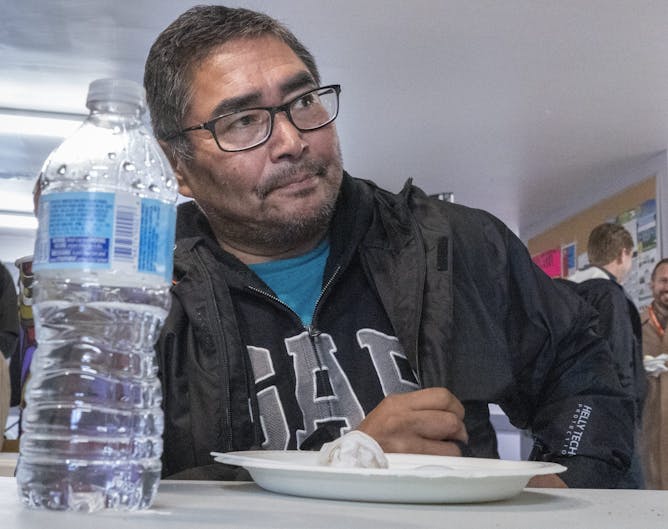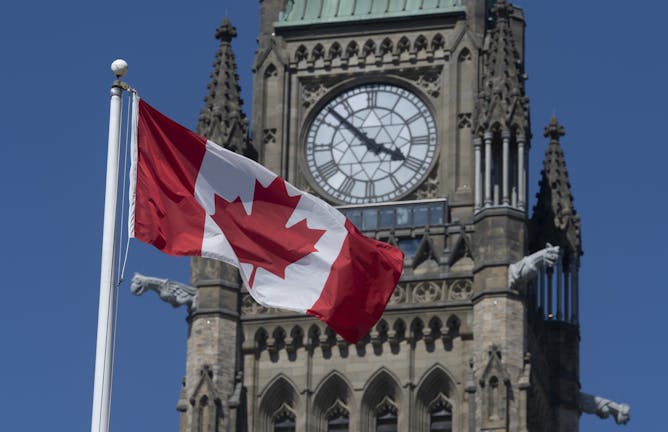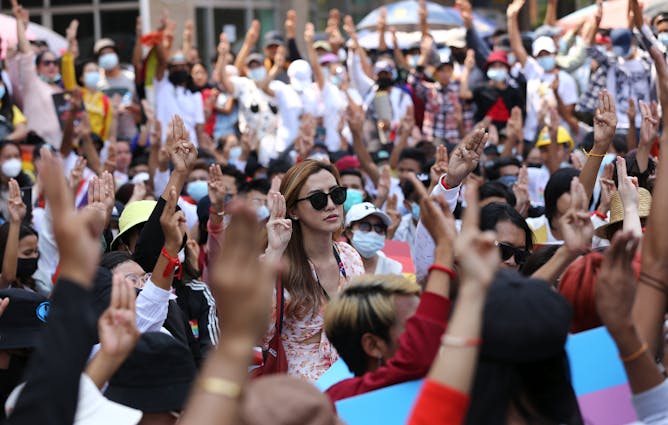|
On the surface, a “sin tax” on sugar-sweetened beverages seems to make some sense — it might reduce consumption of drinks that aren’t considered healthy choices while at the same time raising tax revenues to help offset the costs of health conditions linked to poor diets. But a closer look reveals how such a tax would unfairly target Indigenous Peoples.
Today in The Conversation Canada, Myra J. Tait and Natalie Diane Riediger explain that Indigenous Peoples in Canada are at high risk for diabetes — one of the conditions that a sugary drink tax is designed to address. They are also far more likely than other people in Canada to live under boil-water advisories. A sugary drink might not be such an unhealthy choice for someone without access to clean drinking water. Taxing them for making that choice is unfair, unethical and illogical.
Also today:
Regards,
|

A water bottle sits on the table in front of Chief and NDP candidate Rudy Turtle during a visit by NDP Leader Jagmeet Singh on Oct. 5, 2019 on the Grassy Narrows First Nation, where industrial mercury poisoning in its water system has seriously affected the health of the community.
THE CANADIAN PRESS/Paul Chiasson
Myra J Tait, Athabasca University; Natalie Diane Riediger, University of Manitoba
A tax on sugar-sweetened beverages may be intended to improve health, but for Indigenous consumers, such a tax would be unethical, contravene tax law and undermine Indigenous rights.
|

In a pandemic, vaccines are in very high demand, and this threatens their supply.
(Shutterstock)
Paula Larsson, University of Oxford
In 1959, three armed men broke into the University of Montréal and stole the whole supply of polio vaccine — 75,000 vials valued at $50,000. What have we learned from this event?
|

According to a recent survey of public servants by the Commissioner of Official Languages, more than 44 per cent of French-speakers are uncomfortable using French at work.
CANADIAN PRESS/Adrian Wyld
Christian J. Y. Bergeron, L’Université d’Ottawa/University of Ottawa
A recent survey reveals a general uneasiness about using French among both francophone and anglophone public servants in administrative regions where bilingualism is required.
|

Anti-coup protesters flash the three-fingered salute during a rally in downtown Yangon, Myanmar on Feb. 19, 2021.
(AP Photo)
Gabrielle Bardall, L’Université d’Ottawa/University of Ottawa; Elin Bjarnegård, Netherlands Institute for Advanced Study
Despite having a woman leader, women are largely excluded from key positions of influence and leadership in Myanmar — a situation that helped the country's military succeed in its recent coup.
|
La Conversation Canada
|
-
Pierre-Majorique Léger, HEC Montréal; Sarah Cosby, HEC Montréal; Sylvain Senecal, HEC Montréal
Avec l’essor des médias sociaux et la popularité des contenus générés par les utilisateurs, les photos sont devenues un moyen de communication très populaire pour les informations liées aux voyages.
|
|
COVID-19
|
-
Ben Bramble, Australian National University
It is possible to be an ethical vegan, who supports a better world for animals, and have the COVID-19 vaccine.
|
|
Culture + Society
|
-
Ronald Hall, Michigan State University
Fair skin as a beauty ideal underpins the global bleach cream industry – valued at $8.6 billion. There is a nascent backlash against the practice, which endangers health and can perpetuate racism.
|
|
Environment + Energy
|
-
Hyacinth C. Nnamchi, GEOMAR Helmholtz Centre for Ocean Research Kiel
With research that offers new insights, there is increased hope for improved climate predictions and better preparation for severe weather conditions.
|
|